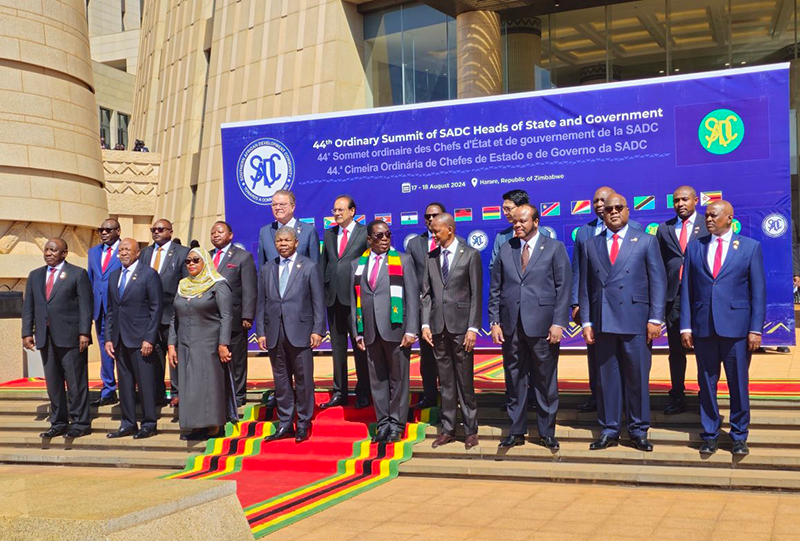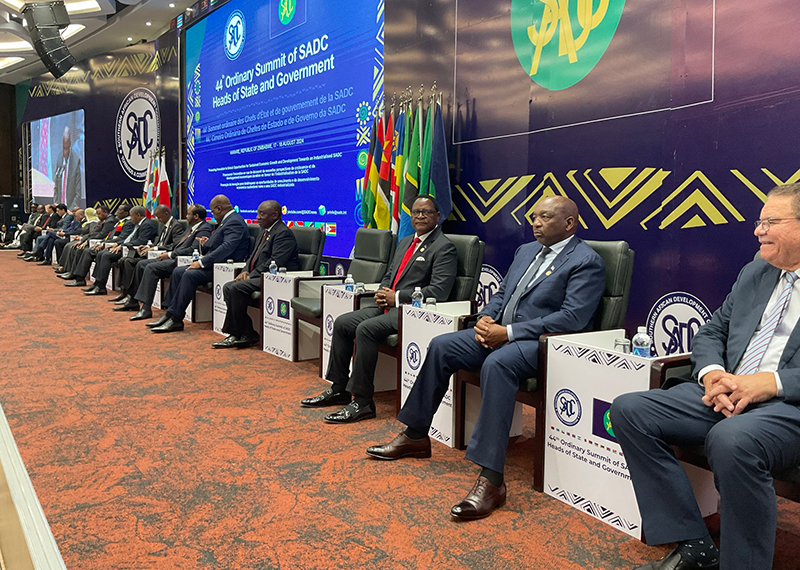- News
- No Comment
SADC: Harare summit best attended in 9 years; only three leaders absent

By News24.com
HARARE: Despite local controversy such as the jailing of opposition activists and pressure to move it from Harare, Zimbabwe, the 44th Southern African Development Community (SADC) ordinary summit was of the best-attended – by heads of state and government – in the past nine years.
Only three heads of state didn’t attend, namely Zambia’s Hakainde Hichilema, Comoros’ Azali Assoumani and Prithvirajsing Roopun of Mauritius.
The least attended summit was in South Africa in 2017 where just nine out of 16 heads of state and government showed up.
The Harare summit ran under the theme: Promoting Innovation to unlock opportunities for sustained economic growth and development towards an Industrialised SADC.
Addressing delegates, Claver Gatete, the United Nations Under-Secretary-General and Executive Secretary of the Economic Commission for Africa, spoke about SADC’s capacity and the importance of working together.
“The region is home to most of the world’s gold, copper, cobalt, lithium, chromium, graphite, and platinum and possesses significant livestock and agricultural endowments.
“We have no choice but to look inward for homegrown solutions including domestic resource mobilisation and innovative financing for climate to sustain our development. And SADC can be a leader on this imperative,” he said.
READ | DRC civil society calls on SADC leaders to tackle North Kivu conflict at Harare summit
Ahead of the summit, Zambia and the Democratic Republic of Congo (DRC) were locked in a trade dispute over imports from Zambia, with Lusaka responding by closing its borders.
The two countries are both Common Market for Eastern and Southern Africa (Comesa) and SADC members. However, they are not signatories to trade pacts of the two blocks and, therefore, rely on a bilateral agreement signed in 2015.
Politics

SADC removed Eswatini’s political and security situation from the discussion table of the Troika Organ on Politics, Defence and Security Cooperation.
The SADC leaders “noted the positive progress regarding the political and security situation in the Kingdom of Eswatini” as presented by King Mswati III.
According to the SADC, communique leaders, “endorsed the request for the Kingdom of Eswatini to be removed from the agenda of the Organ Troika and applauded His Majesty King Mswati III, the Government and the people of Eswatini for this milestone.”
King Mswati III showed disinterest in his kingdom being discussed by SADC as far back as January 2023 when he sent in his place, Prime Minister Cleopas Sipho Dlamini, to the SADC extraordinary summit in Windhoek, Namibia.
This was after the killing of pro-democracy activist Thulani Maseko. No one has been arrested for the crime that civil society blames on the Eswatini regime.
Lesotho’s Prime Minister Sam Matekane, who survived a vote of no confidence with the help of the military last year, left the summit a happy man after the bloc highlighted that his government was on track with political reforms.
He was urged to move with speed to pass the 10th, 11th and 12th Amendment to the Constitution Bills known as the Omnibus Bill, to end a decades-long crisis that can be traced back to events before the 2014 coup.
The SADC Panel of Elders led by former Tanzanian president Jakaya Kikwete, is helping Lesotho pass the Omnibus Bill.
Elections
The Summit also commended the DRC, Eswatini, Madagascar, SA and Zimbabwe for successfully holding peaceful elections.
However, the first elections held in Southern Africa this year were in Comoros in January, but this was not discussed.
For the last part of the year, there are elections due in Botswana and Mozambique in October, Namibia in November and Mauritius – on dates yet to be announced.
The delegates bid farewell to Mozambican president Filipe Nyusi, who attended his last summit as a head of state.
Nyusi’s second and last presidential term ends in two months and delegates expressed gratitude for his contributions to the SADC.
It was also Namibia’s interim president Nangolo Mbumba’s first and only summit with his term ending in November.
Security
Angolan president João Lourenço had some good news about the DRC crisis.
As the facilitator of the Luanda Peace Process, ahead of the Summit, he met with Rwandan President Paul Kagame and DRC’s Felix Tshisekedi separately within the same week.
He told SADC that he was expecting talks between the two governments to go ahead on 20 August, after the two leaders were presented with a peace plan to study.
